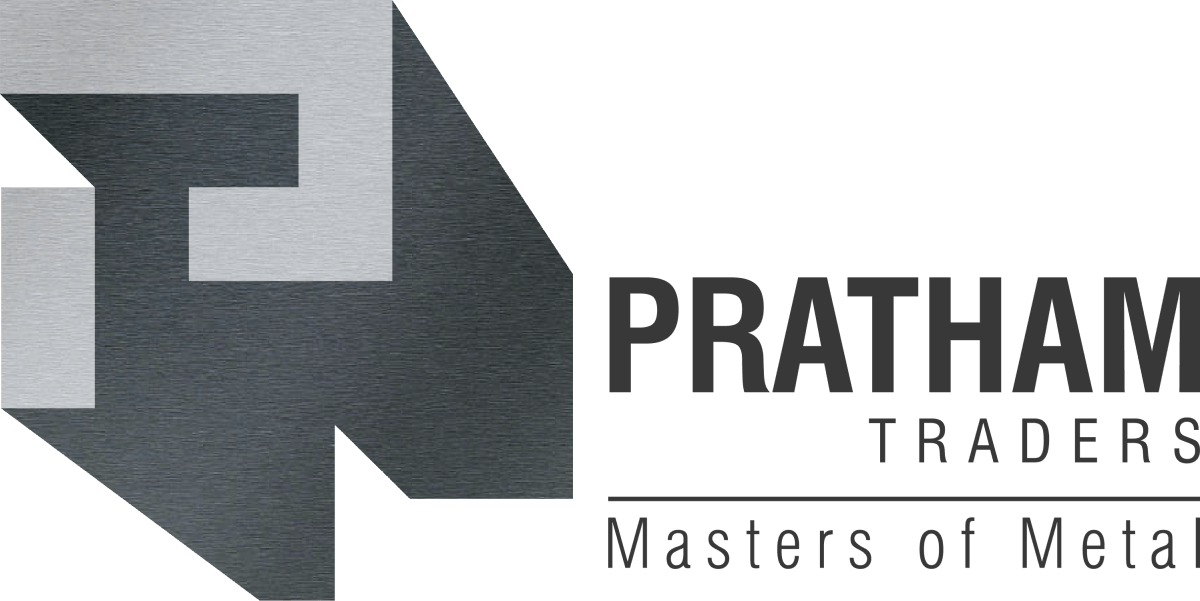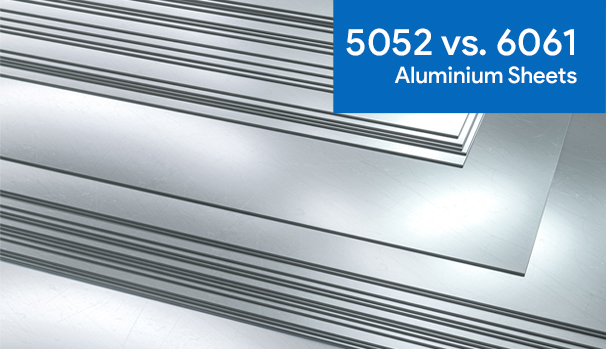Owing to a long list of impressive properties and diverse applications, aluminium is one of the most dominating metals among sectors across the globe. Aluminium sheets are commonly used in various industries, including aerospace, automotive, construction, transportation, electronics, packaging, and consumer goods. Their usage can be different depending on factors such as alloy composition, thickness, surface treatment, and specific industry requirements.
Today, aluminium sheets 5052 and 6061 are commonly leveraged by multiple sectors. Both 5052 and 6061 belong to the aluminium-magnesium family of alloys and are suitable for a wide range of applications. However, distinct compositions result in different 5052 and 6061 aluminium sheet properties. Given their equally high versatility, it can be challenging to choose the right product.
In this blog, we delve into the differences between aluminium sheets 5052 vs 6061, exploring their properties, composition, applications, and how to choose the ideal alloy.
Differences Between Aluminium Sheets 5052 vs 6061
1. Composition:
5052 aluminium alloy contains magnesium as its primary alloying element, making it highly resistant to corrosion in marine and industrial environments. Its excellent formability makes this alloy a preferred choice for applications that require intricate shaping and bending. Additionally, aluminium sheet 5052 is often used for its good weldability and moderate strength. On the other hand, 6061 aluminium sheets are typically alloyed with both magnesium and silicon. This combination makes for improved strength and heat-treatability to the alloy. 6061 is renowned for its mechanical properties and is often selected for structural components where higher strength and durability are required.
2. Strength:
When it comes to aluminium 5052 vs. 6061 strength, the latter is typically stronger and harder than 5052 due to its higher alloying content. It has better tensile and yield strength, making it a preferred choice for applications where load-bearing capabilities are critical. 5052 aluminium has moderate strength, making it suitable for general-purpose applications.
The tensile strength of 5052 aluminium typically ranges from about 31,000 psi to 41,000 psi (214 MPa to 283 MPa). Whereas, the tensile strength of 6061 aluminium typically ranges from about 40,000 psi to 45,000 psi (276 MPa to 310 MPa). Both alloys have varying levels of hardness based on their temper.
3. Machinability:
Aluminium sheet 6061 takes the lead in terms of machinability. This is due to its composition, which includes elements like magnesium and silicon that form small, brittle chips during machining. This contributes to better surface finishes and longer tool life. As such, it is a popular choice for applications that require extensive machining, such as components for machinery, equipment, and aerospace parts. 5052 aluminium also offers good machinability, but it might not perform as well as 6061 in terms of producing clean and manageable chips. While it is still relatively easy to machine, the chip formation might be less consistent and more continuous compared to 6061.
4. Corrosion Resistance:
Both alloys possess good corrosion resistance due to their magnesium content. However, 5052’s magnesium concentration is slightly higher, making it well-suited for corrosive environments. It forms a protective oxide layer on its surface when exposed to air, which helps prevent further corrosion. Due to its high resistance to saltwater corrosion, 5052 aluminium is widely used in marine applications, boat hulls, and other components that are exposed to moisture and corrosive settings. While 6061 aluminium does offer corrosion resistance, it is not as corrosion-resistant as 5052.
5. Formability:
Aluminium sheet 5052 is highly formable. It is the right choice for applications that require intricate shapes and bends, such as automotive parts, marine components, panels, sheet metal work, and general fabrication. It can be bent, shaped, and formed without much risk of cracking or failure. 6061 aluminium is less formable compared to 5052. It can still be formed using various techniques, but the alloy is not as easy to work with in terms of deep drawing and complex bending.
The higher strength of 6061 can make it more prone to cracking or distortion during certain forming processes. However, with proper techniques, it can still be formed to achieve desired shapes.
6. Applications:
5052 and 6061 aluminium sheets find their homes in a variety of industries and applications. Due to its exceptional corrosion resistance, 5052 aluminium is commonly used in marine and aquatic applications. Aluminium containers and packaging benefit from 5052’s corrosion resistance and formability. 6061 aluminium offers higher machinability, making it suitable for applications where structural integrity and ease of machining are crucial.
This includes aircraft parts, bike frames, automotive components, structural supports, machinery parts, and other load-bearing structures. Its mechanical properties are advantageous in manufacturing equipment and machinery.
7. Choosing The Right Alloy:
As aluminium continues to shape industries with its versatility and reliability, the choice between 5052 and 6061 is a critical decision. The right choice between the two powerful alloys depends on the specific requirements of your application. It is important to consider the intended environment, mechanical properties, and manufacturing processes when selecting the right aluminium alloy for your project.
If corrosion resistance is the main goal and strength is not critical, then 5052 might be the better choice. If you need higher strength and good machinability, 6061 would be more suitable.
Get Quality Aluminium Sheets 5052 & 6061 with Pratham Traders
With 10,000+ projects completed, Pratham Traders is one of the leading stockists of aluminium sheets, plates, rods, bars, blocks, circles, strips, coils, and other accessories. Our mission is to provide our customers with high-quality products that are durable, versatile, and cost-effective.
We provide a range of thoughtfully designed products including aluminium sheets, checkered plates, stucco sheets, perforated sheets, and rolled plates. These unique sheets bring multiple benefits to the table like slip resistance, heat reflection, corrosion resistance, aesthetics, and other insulation properties. Our products are rigorously tested to ensure optimum quality and durability.
We are committed to delivering exceptional customer service and fostering long-term relationships. With this vision in mind, we maintain a vast inventory in a variety of sizes, shapes, and alloys, ensuring that our customers have access to the products they want in accordance with their business assignments. You can browse through our top-quality aluminium products online.

